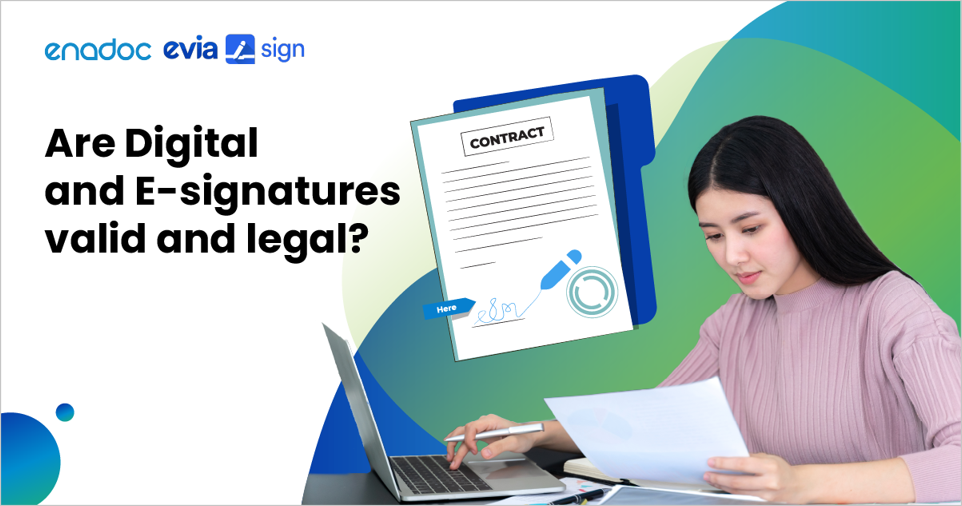Are they Valid or Legal?

An e-signature is the electronic version of a handwritten signatures, whereas digital signature uses public key cryptography that provides a unique digital identification. Digital signatures become part of the document itself by using encryption. A digital signature has been a better choice for electronically transmitted documents because of its security and authentication features. But one of the most frequently asked questions is, “is it valid and legal?” The straight answer is yes. As electronically transmitted documents are becoming a standard because of their ease of use and practicality, laws are also adapting to these technologies for fair use. Thus, to maximize it, you should know how it works, learn the laws governing it, and understand its capabilities and limitations.
What is a digital signature?
A digital signature is like an encrypted seal to a document to prove its integrity, ensuring that no one tried to alter and forge the document. The encryption by a credible certification body digitally authenticates the said signature. With this, digital signatures have been the top choice for businesses in protecting confidential documents.
A Digital signature is valid and is admissible as evidence in a Court of law as far as,
- It provides identification of the signatory.
- It demonstrates that the signatory had control over the document and intended to place the digital signature.
- It is part of the data wherein modifications can be easily identified.
What are the laws governing digital and e-signatures?
Digital signatures’ validity and legality heavily rely on specific laws. Acts may differ from one country to another, but the overall point of these laws remains the same – to validate that the concerned parties lawfully signed a document through digital means. For further information, here are some Acts from different countries:
Philippines: Electronic Commerce Act of 2000
Sri Lanka: PL 005400 Electronic Transactions (Cov) Act, No. 25.pmd (srilankalaw.lk)
Brunei: Electronic Transactions.fm (agc.gov.bn)
United States: Electronic Signatures in Global and National Commerce Act
New Zealand: Electronic Transactions Act 2002
Canada: Personal Information Protection and Electronic Documents Act
Indonesia: JDIH KEMKOMINFO
What are the limitations of digital and e-signatures?
Laws may vary slightly depending on the jurisdiction. However, most of the jurisdictions prefer digital signatures are inappropriate for some types of documents, such as notarial executed documents, including but not limited to:
- Certain government documents
- Power of Attorneys
- Last Wills and Codicils
- Deed of Transfer
- Deed of Gift
- Lease Agreements
What is your take regarding this matter?
Knowing more about digital signatures could help you decide to improve your processes. Today, innovative digital signature solutions give evidence of their advantages, legality, and validity. Compliant with digital signatures around the world, Enadoc Evia Sign is a secure and convenient solution to get your documents approved and signed digitally from anywhere and anytime. Archived in a scalable cloud environment, you can be sure that your files are safe. And through digital certification, you can be sure that your digital documents are not altered or forged.
Be the first to know. Register now: https://offers.enadoc.com/evia/ and have a chance to get Enadoc Evia Sign for free for 1 year on its launch this September.
For more details:
Email: lisa@enadoc.com







